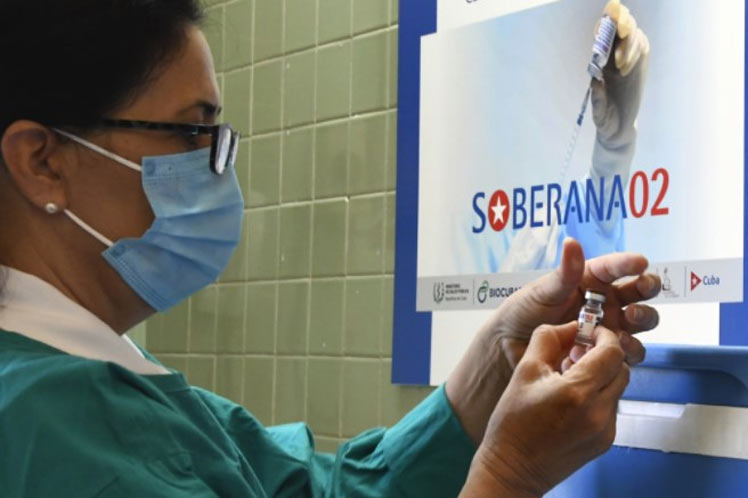In an article by key opinion leaders, the authors considered that the fast development and deployment of mRNA vaccines and adenovirus vectors against the disease continues to astound the global scientific community.
However, these drug platforms and production approaches have yet to achieve global equity for the anti-Covid-19 vaccine, warned Peter J. Hotez and Maria Elena Bottazzi, creators of the Corbevax technology, manufactured in India under the ownership of Baylor College of Medicine, Texas, Houston.
Whole inactivated virus (WIV) and protein-based vaccines offer enormous promise for filling gaps in access to the anti-Covid-19 biologic, especially for the world’s low- and middle-income nations in Africa, Latin America and Southeast Asia, they warned.
An attractive feature of these is their processing capacity in low- and middle-income countries, especially in Brazil, Cuba, Mexico, South Africa, China, India, Indonesia and elsewhere, they said.
Regarding the Cuban Soberana 02, from the Finlay Vaccine Institute, they pointed out that it is also a RBD candidate, but it is expressed in mammalian cells (CHO, it is immunogenic in mice, as well as being authorized for emergency use in the Caribbean island, where it is also approved for children over two years of age.
In addition, they pointed out, it was authorized for emergency use in Iran where it is known as PasteurCovac .
There is an urgent need to continue speeding up the production of these drugs for low- and middle-income countries in time to fully vaccinate these populations by the end of 2022 at the latest, they noted.
Achieving these targets would also serve as an important reminder that we must continue to maintain expertise in the production of multiple vaccine technologies, rather than relying on a single platform, the authors asserted in Annual Review of Medicine.
pgh/etc/mem/znc/gdc










